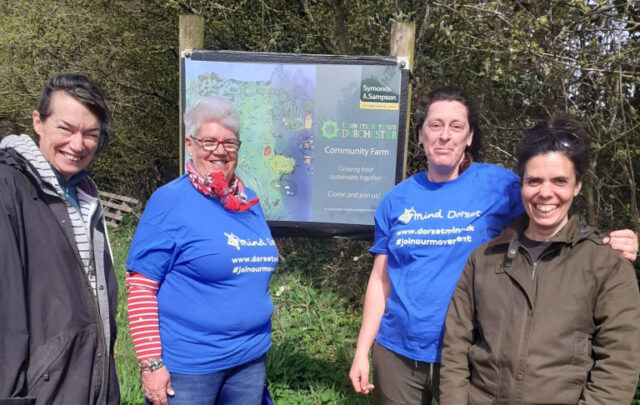NOTE: Images in this archived article have been removed.
Home front historian and UC Cooperative Extension advisor Rose Hayden-Smith is calling on Californians to plant Victory Gardens to ease a variety of the nation’s ills.
The last great push for Victory Gardens came from the federal government during World War II. Today, Hayden-Smith said, there isn’t as strong a connection between American military involvement and the home front, but the American way of life is imperiled by more than foreign wars. The country is facing ever rising fuel and food prices, the threat of global warming, and a high rate of obesity.
 World War I government poster: created by noted children’s artist Maginel Wright Barney
World War I government poster: created by noted children’s artist Maginel Wright Barney
Hayden-Smith suggests a Victory Garden is one remedy for these troubles, and she is leading an effort to motivate and inform new gardeners across the state. In June, Hayden-Smith launched a Victory Grower Web site at
http://groups.ucanr.org/victorygrower with everything a new gardener needs but the seed and spade. It includes practical facts, historical information, links, an interactive blog and an inspirational theme, taken from a World War I Victory Garden promotional poster that proclaims, “The seeds of victory insure the fruits of peace.”
One of the fruits of peace is access to good food. For the Web site, Hayden-Smith borrowed the Kellogg Foundation’s Good Food Movement definition of “good food,” which has four components:
Healthy – because it is fresh and minimally processed
Green – because it’s produced and distributed in a way that supports a healthy and sustainable environment
Fair – because it generates an equitable wage for those producing and selling it
Affordable – because access to good food should be a right, not a privilege
 UC advisor Rose Hayden-Smith in front of a demonstration Victory Garden.A 4-H Youth Development advisor for UCCE in Ventura County, Hayden-Smith smiles ruefully when recalling the main reason the federal government promoted Victory Gardens.
UC advisor Rose Hayden-Smith in front of a demonstration Victory Garden.A 4-H Youth Development advisor for UCCE in Ventura County, Hayden-Smith smiles ruefully when recalling the main reason the federal government promoted Victory Gardens.
“When young men were being drafted to go to war, one in five failed the physical,” Hayden-Smith said. “The government realized that Americans’ poor dietary practices were cutting into the ranks of potential soldiers.”
But the Victory Garden held other benefits. It allowed more farm-produced food to be shipped overseas to soldiers and civilians where ongoing battles inhibited agricultural production, it helped Americans stretch their rationed food staples, and, by giving all Americans the ability to contribute to the war effort, it boosted morale.
There is perhaps no better place than the UC Hansen Agricultural Center in Santa Paula to base the resurgence of the Victory Garden movement. The center is on the historic Faulkner Farm, developed in the late 1800s and early 1900s with a striking Victorian home and traditional red barn. The environment is a visual throwback to the simple farm life of mid-20th century America.
The 27-acre Hansen Agricultural Center is rife with nostalgia and open space, but Hayden-Smith says such environs are by no means required for a Victory Garden. With the economy cutting into American’s ability to put healthful food on the table, its time, Hayden-Smith said, to “rethink the landscape.”
“Suburban landscape borders, front and side yards and even good-sized pots placed on patios or balconies can yield good food,” she said. “If there is no scrap of soil at home to till, look to local churches, community centers and schools.”
Any effort to get started will reap immediate benefits, Hayden-Smith assures. Research and practice has shown that gardening:
- Improves students’ academic performance
- Produces fresher, better-tasting vegetables than are available in grocery stores
- Produces food inexpensively
- Provides an opportunity for physical activity
- Increases the likelihood children will eat vegetables
- Provides assurance the food is uncontaminated
Hayden-Smith, who is also a national Food and Society Policy Fellow and previously coordinated the UCCE Master Gardener program for Ventura County, encourages California residents to seek support for Victory Gardens from local Master Gardeners. Master Gardeners are university-trained volunteers who reach out to the public with science-based gardening information.
The program, available in 49 California counties, offers gardening advice that takes into account local conditions and promotes fertilization and pest control practices that will minimize chemical usage and potential environmental harm. To find the Master Gardener program in your county, see
http://ucanr.org/findmg or call your local UC Cooperative Extension office, found in the county government section of the phone book.
 World War I government poster: created by noted children’s artist Maginel Wright Barney
World War I government poster: created by noted children’s artist Maginel Wright Barney UC advisor Rose Hayden-Smith in front of a demonstration Victory Garden.A 4-H Youth Development advisor for UCCE in Ventura County, Hayden-Smith smiles ruefully when recalling the main reason the federal government promoted Victory Gardens.
UC advisor Rose Hayden-Smith in front of a demonstration Victory Garden.A 4-H Youth Development advisor for UCCE in Ventura County, Hayden-Smith smiles ruefully when recalling the main reason the federal government promoted Victory Gardens. 




